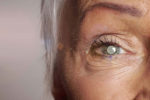Stroke survivors can make changes to their everyday routines to lower their risk for a second stroke, but a new survey has found that most of them are not taking all possible steps to do so.

Male stroke survivors have a 42 percent chance of having another stroke within five years, while women have a 24 percent chance during the same time period.
The National Council on Aging survey found that 66 percent of respondents said they knew someone who had suffered a stroke, but many were not exercising regularly (32 percent), refraining from smoking (19 percent) or watching their diet (18 percent). All of these are simple steps proven to help prevent a future stroke.
The survey results show that many Americans incorrectly identified excessive stress (87 percent), overexertion while exercising (56 percent), dehydration (38 percent), asthma attacks (24 percent) and wearing constrictive clothing (16 percent) as risk factors for stroke.
Respondents also mistakenly selected shortness of breath (53 percent) and heart palpitations (50 percent) as stroke symptoms. Nearly two-thirds of those surveyed failed to recognize the age range (age 65+) most affected by stroke.
The survey also found that older Americans with the highest risk for stroke show little concern about it.
While two-thirds of all strokes occur in people over 65, only one in eight of those surveyed in this age group indicated they were most concerned about experiencing a stroke, given the choice of other serious conditions such as Alzheimer’s disease and diabetes that result in fewer fatalities. Additionally, 75 percent of seniors surveyed said they have never talked to their doctor about stroke risk.
“For older Americans, stroke poses a significant health risk, so it is alarming to us that so few seniors have discussed their personal risk for stroke with their doctor,” said James P. Firman, president and CEO of NCOA. “Better education is clearly needed to help all Americans understand their risk of stroke to protect their health.”
Dr. Mark Alberts, professor of neurology at Northwestern University Medical School in Chicago, said it particularly important for stroke survivors and their families or caregivers to work closely with their physicians to develop individualized treatment plans.


